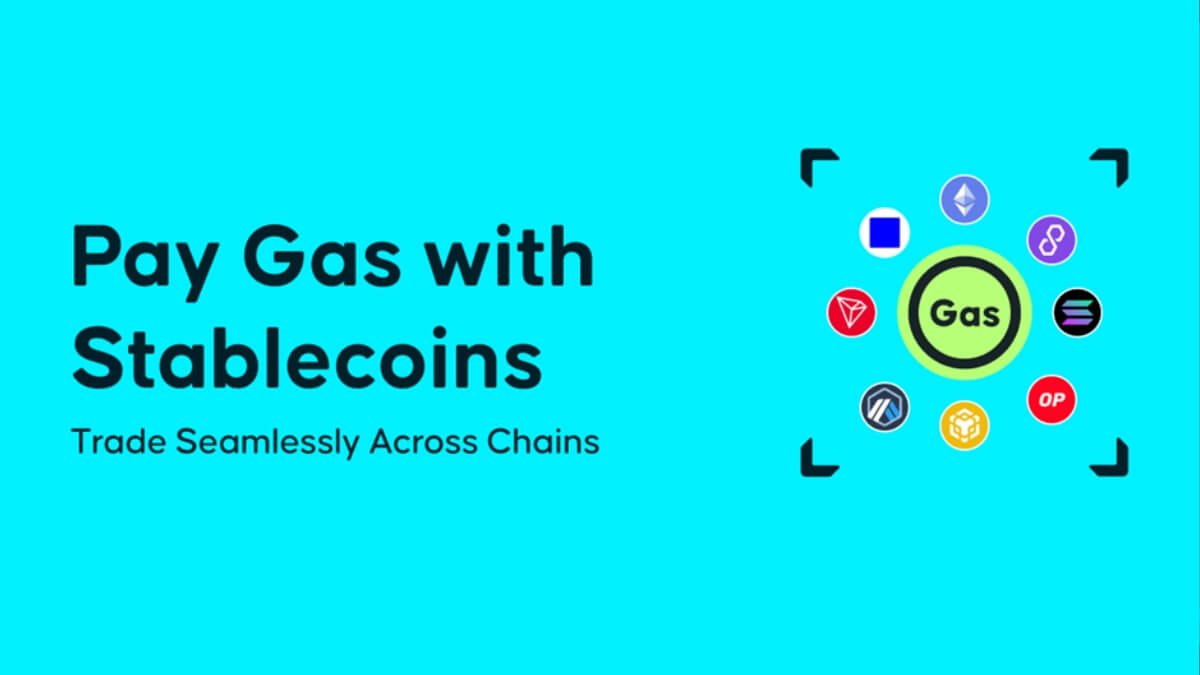
Bitget Wallet users can now pay transaction fees (gas) across major blockchains using stablecoins (such as USDT or USDC) or the native token BGB, instead of holding native tokens like ETH, TRX or SOL.
The feature supports major EVM-compatible chains (including Ethereum, BNB Chain, Base, Polygon, Arbitrum and Optimism), as well as Solana and TRON.
With no user activation required, gas fees are quoted in USDT, USDC or BGB and are deducted automatically at time of execution.
According to Jamie Elkaleh, Chief Marketing Officer at Bitget Wallet, “abstracting gas payments is a foundational step toward making self-custody usable at scale.”
The upgrade builds on the wallet’s earlier “GetGas” system, which allowed pre-funded gas fees using stablecoins or other tokens across 14 networks.
What’s the big change?
Users no longer have to acquire a small amount of each network’s native token (for example ETH on Ethereum, SOL on Solana, or TRX on TRON) solely to pay gas fees. The wallet now abstracts that requirement. For EVM-networks it implements the recently introduced EIP‑7702 standard, enabling externally owned accounts (EOAs) to delegate execution to smart‐contract logic and pay in stablecoins or BGB. On Solana it uses a native Paymaster model; on TRON it uses an energy-leasing mechanism.
This move signals a push for a smoother self-custody experience. Traditionally, self-custody wallets required more management than centralized exchanges (which often hide gas details). Bitget Wallet’s new system narrows that gap.
Why does it matter?
Gas fees and native token management have long been seen as stumbling blocks for wider crypto adoption. Users often find it cumbersome to manage multiple tokens just to send or swap assets. By enabling fees in stablecoins — which many users already hold — the wallet reduces onboarding friction.
Other wallets and services have begun exploring similar abstractions, but Bitget’s claim to support both EVM and non-EVM chains across a large number of networks puts it in a competitive position.
Earlier this year, Bitget Wallet announced gas-free support for the Base network (up to three free transfers and swaps per day) as part of its broader strategy to offer gas abstraction. The latest upgrade extends that strategy to permanent fee-payment flexibility.
For users, this means one less technical barrier — no more worrying about acquiring tiny amounts of multiple native tokens just to transact. For developers and the ecosystem, the rollout of EIP-7702 and equivalent models across networks suggests account abstraction is gaining traction.
Bitget says it plans to expand support to additional chains such as Plasma, Sei and Morph.
The next frontier may be cross-chain transactions with gas abstraction — enabling users to move assets across networks without worrying about which chain’s native token they hold.
Still, this feature doesn’t automatically eliminate network fees: users still pay for network resources, albeit in a more convenient currency. It also raises questions about how the wallet handles fee subsidies, risk of front-running or how cost dynamics shift when paying in stablecoins rather than native tokens.
Read Also: Ripple Immunefi Launch ‘Attackathon’ for XRPL Lending Protocol Security
Disclaimer: This article is for informational purposes only and does not constitute investment advice.